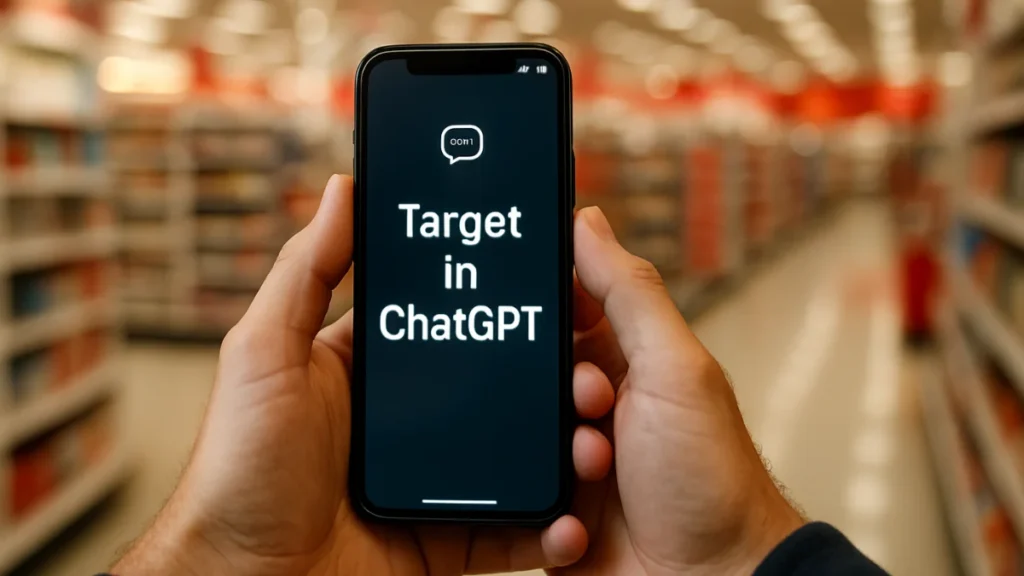Target is officially stepping into the chat.
Next week, the retailer will debut a fully interactive, ChatGPT-powered shopping app inside OpenAI’s platform—a move that puts one of the biggest names in American retail directly into the AI commerce race. The integration lets shoppers ask for ideas, browse curated picks, build multi-item baskets, shop for groceries, and check out without ever leaving the chat window.
It’s the kind of frictionless, “I didn’t even mean to buy that” pipeline tech companies have been dreaming about for a decade. And now OpenAI is pushing to make it the default.
Retail Is Becoming an App Store Inside ChatGPT
The Target launch is part of OpenAI’s new strategy to turn ChatGPT into a retail hub. Over the past month, the company has been rolling out brand-specific mini apps—including Canva, Coursera, Figma, Expedia, Spotify, and Zillow.
Target is the newest badge on the board, and it may be one of the most consequential. Unlike digital-first services, Target brings the full weight of big-box retail: groceries, household essentials, toys, home goods, and the 2 a.m. “I need something right now before life collapses” essentials.
For OpenAI, this is more than a partnership—it’s positioning. The company wants ChatGPT to be the starting point for shopping, not a place you wander into by accident.
Inside Target’s Bigger Bet on OpenAI
Alongside the consumer-facing ChatGPT app, Target is expanding its enterprise partnership with OpenAI. The retailer will roll out ChatGPT Enterprise to 18,000 headquarters employees, plugging the tech into everything from supply chain forecasting to store operations.
Target also plans to fold OpenAI’s newest models deeper into its internal tools—customer support systems, employee training, shopping assistants, and personalized gift finders.
Translation: AI won’t just help you shop at Target; it’s going to help Target run Target.
Why This Matters
The big story isn’t that shoppers will be able to ask ChatGPT for a casserole recipe and instantly buy all the ingredients. It’s that the retail world is rapidly reorganizing around AI-driven discovery and impulse buying.
Shopping is becoming an input, not a search. You tell the model what you need—or think you need—and it quietly handles the rest.
The Real Question
If OpenAI owns the interface, what happens to retailers who don’t?
For now, Target is treating the partnership like an offensive play: move early, move fast, claim space. With more retailers expected to launch ChatGPT integrations over the next year, this could become the new competitive front.
But Target has one advantage: it’s already inside the chat.
